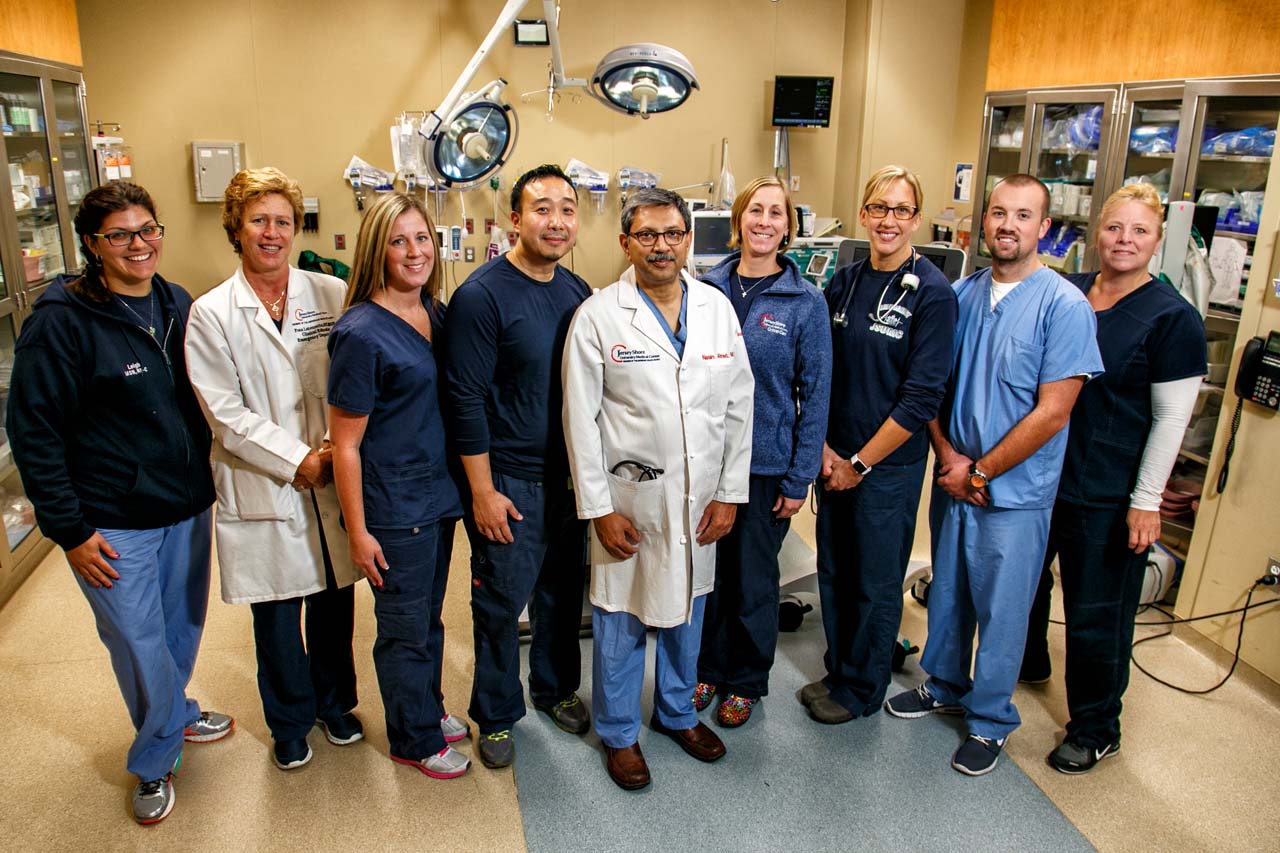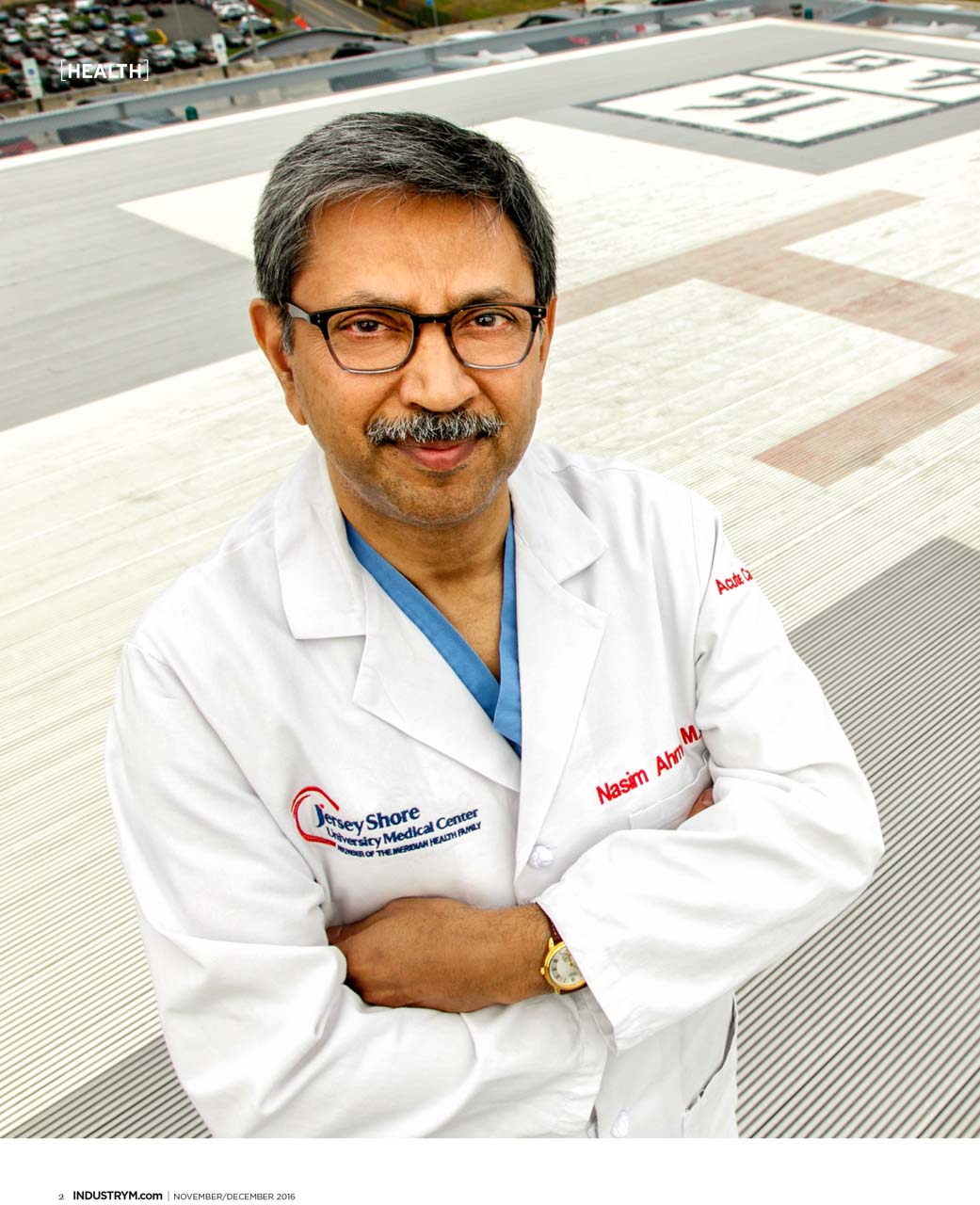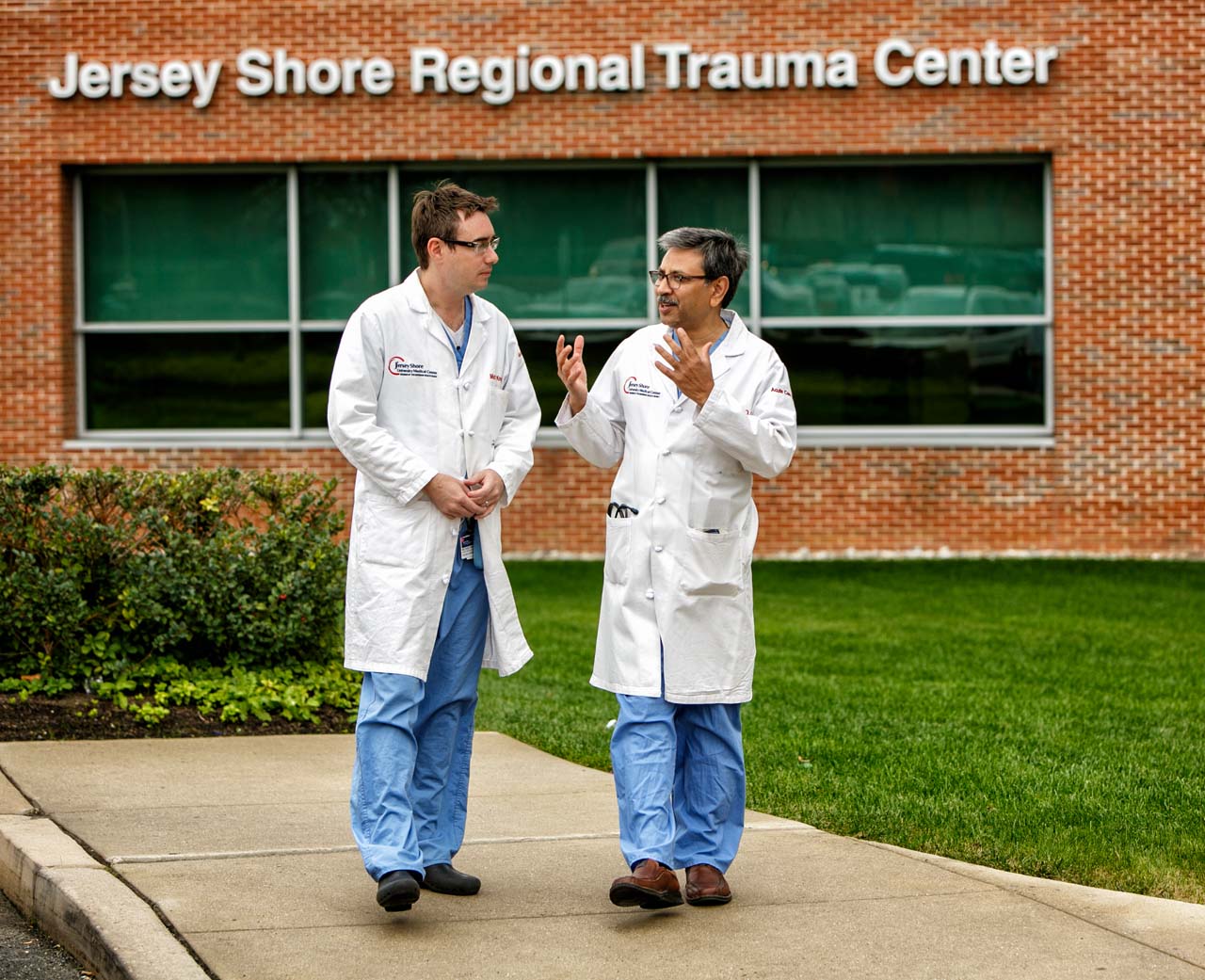Jersey Shore University Medical Center’s Trauma unit provides vital services to thousands of area residents
by Jessica Jones-Gorman Photos By Amessé Photography
Designated as a Level II Regional Trauma Center more than 20 years ago, Jersey Shore University
Medical Center in Neptune has provided vital services to tens of thousands of the area’s most critical patients for the past two decades. When accidents or injuries occur, this specialized center is where the community turns. Today, the hospital is still making advancements in helping New Jersey residents recover from life’s most difficult events.

“Since 1990, Jersey Shore University Medical Center has been providing services to the community’s most unfortunate patients,” noted Dr. Nasim Ahmed, its trauma chief. “These are people who are completely healthy and normal before sustaining life-changing injuries. In an instant, they are catapulted into some very dire situations, and it is our job to put the pieces back together.”
Dr. Ahmed, who earned his degree at Dow Medical College in Karachi, Pakistan, came to the United States in 1991, completing his surgical residency at Catholic Medical Center and a surgical critical care fellowship at NorthShore LIJ. After working in the Midwest for a time, he moved back east in 2001 to accept a job as a trauma surgeon at Jersey Shore University Medical Center.

“Trauma is a very unique discipline,” Ahmed said. “We never know what’s coming through the hospital door, so you have to be ready 24/7 to take care of any problem or any injuries that a patient sustains. But that is my passion—taking care of people and being able to handle even the most unpredictable challenge.”
After working as a trauma surgeon with Jersey Shore for 14 years, Ahmed was named chief of trauma in 2015. “My responsibilities are to run the day-to-day operations of the Trauma Center, as well as to teach our medical students and partake in clinical research,” he explained. “Our team presents a number of papers every year to national and international conferences, and we publish several papers in journals as well. But together, our biggest focus is patient care.”
The Trauma Center maintains a roster of six staff surgeons and has a dedicated floor staffed with specialized nurses and ancillary support workers. Last year, the hospital treated 1,600 trauma patients, 100 of them pediatric cases.
“Trauma itself is a complex discipline,” Dr. Ahmed explained. “Trauma surgeons need to have very specific training and expertise, and they have to have a passion to take care of patients who come in at any time during the day or night. Our nursing staff, which includes advanced practice nurses, also has special training and expertise, which allows us to accommodate any patient in any scenario.”

The hospital recently extended its accreditation as the only Level II Trauma Center in Monmouth and Ocean counties, made official this past summer by the Verification Review Committee, a unit of the Committee on Trauma of the American College of Surgeons.
“We recently recruited several new team members and at the same time were up for our re-accreditation,” Dr. Ahmed said. “Our team works hard to ensure the highest-quality care to our patients, and our continued recognition by the American College of Surgeons is proof of that.”
The hospital is also on the cutting edge, using the latest technology to provide superior patient care. “Medicine evolves so rapidly, and technology plays a major part,” Ahmed said. “For the past several years, in addition to a routine clinical exam, we have made use of a dedicated ultrasound machine located in one of our trauma bays. These ultrasound exams have been able to pinpoint abdominal injury and give surgeons a better look inside, so we know what the exact course of treatment should be.”
The Trauma Center also has its own high-speed CT scanner, which can perform a whole body scan on-site if necessary. “In a trauma, time is of the essence,” Ahmed said. “That first hour when a patient comes in is dubbed ‘the golden hour,’ because it is so important for us to determine their injuries and how to manage them within that time frame. These latest technologies have allowed us to more efficiently use that time and have positive outcomes.”
The hospital has also expanded its operating room, providing a hybrid station where interventional radiology processes can be performed. “These procedures are becoming widely used,” Dr. Ahmed said. “And in trauma cases, they are often life-saving.” And that ability to save or repair a life is what he defines as the driving force for each and every trauma surgeon.
“This is a challenging and difficult career,” Ahmed concluded. “But that gratitude that you receive after helping someone through what is perhaps the toughest moment of their lives is entirely irreplaceable. Whether it’s multiple gunshot wounds or a horrific car accident, we are the team that can help an individual recover and live a long, productive life. Knowing that your presence makes a difference is what makes you get up each morning. It’s a passion, and it’s very rewarding.”
Jersey Shore University Medical Center
1945 Route 33, Neptune / 732.775.5500
jerseyshoreuniversitymedicalcenter.com

